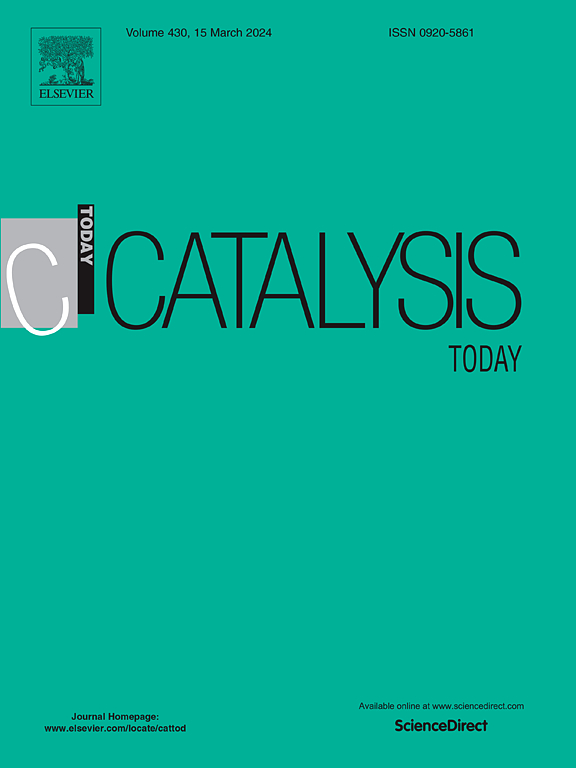Conversion of dimethyl ether to hydrocarbons catalyzed by Pd-loaded *MRE zeolites
IF 5.2
2区 化学
Q1 CHEMISTRY, APPLIED
引用次数: 0
Abstract
The influence of Pd loading on the conversion of dimethyl ether (DME) to hydrocarbons (DTH) was investigated for *MRE-type zeolite catalysts. Catalysts with different Pd loadings were prepared by incipient wetness impregnation and characterized in terms of morphology, composition and acidity. Co-feeding of H2 during DME conversion increased the resistance of the Pd/*MRE catalysts to deactivation, which significantly increased their lifetimes and thus conversion capacities. The product spectra show high olefin contents, comprising light olefins and higher olefins in the C5–C11 range, while contents of aromatics are low. H2 co-feeding reduces the formation of cyclic hydrocarbons and increases the formation of n- and iso-alkanes as well as olefins. Higher Pd loadings slightly decrease olefin production but increase paraffin formation, indicating direct hydrogenation of olefins on Pd nanoparticles. The olefin-rich products offer several possibilities for further processing to fuels and chemicals.
求助全文
约1分钟内获得全文
求助全文
来源期刊

Catalysis Today
化学-工程:化工
CiteScore
11.50
自引率
3.80%
发文量
573
审稿时长
2.9 months
期刊介绍:
Catalysis Today focuses on the rapid publication of original invited papers devoted to currently important topics in catalysis and related subjects. The journal only publishes special issues (Proposing a Catalysis Today Special Issue), each of which is supervised by Guest Editors who recruit individual papers and oversee the peer review process. Catalysis Today offers researchers in the field of catalysis in-depth overviews of topical issues.
Both fundamental and applied aspects of catalysis are covered. Subjects such as catalysis of immobilized organometallic and biocatalytic systems are welcome. Subjects related to catalysis such as experimental techniques, adsorption, process technology, synthesis, in situ characterization, computational, theoretical modeling, imaging and others are included if there is a clear relationship to catalysis.
 求助内容:
求助内容: 应助结果提醒方式:
应助结果提醒方式:


